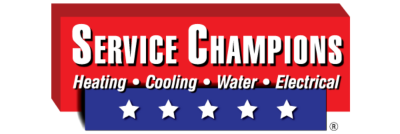High-Efficiency Furnace Maintenance Considerations

January 24, 2023
As high-efficiency furnaces gain popularity (and likely become the standard), people need to know how to maintain them. The Department of Energy has proposed a requirement for new gas furnaces to have a minimum Annual Fuel Utilization Efficiency (AFUE) of 92%.1 In this article, we will explain how to maintain such a furnace, what to expect during annual service, and issues to look out for.
How to Maintain Your Furnace
With winter taking hold in Northern California, a few DIY maintenance tasks can ensure your furnace is working reliably. First, turn off the unit and its circuit breaker. Then proceed with the following tasks:
Replace the Filter: The more your furnace is used, the quicker the filter will clog up. Dirt can restrict airflow and reduce efficiency. To avoid higher energy bills, change the filter every month if using the unit frequently. Also, check the manufacturer’s recommendations for when to do so.
Clean the Space In and Around the Furnace: After opening the access panel, check for dirt and debris inside; you can remove it with a wet/dry vacuum, but use a soft brush to carefully clean mechanical parts. Wipe interior surfaces down with a damp cloth. Meanwhile, check for and tighten loose wire connections and replace any corroded wires.
Inspect the Burners: Look for corrosion that can indicate serious trouble. Dirt and dust can ignite under high heat. Using a long hose, vacuum behind the burners (make sure the gas supply is off). Thoroughly clean around the blower compartment and furnace base as well.
Clean the Flame Sensor: The flame sensor allows the gas valve to open. It detects when a flame is present and relays this information to the system. This thin, bent metal rod sits in the path of the flame. Remove the sensor from its bracket to wipe it down using a fine cloth.
Check/Lubricate the Blower Motor: Once you access the assembly, check the blower belt for wear and corrosion, looseness, wear, or damage such as fraying. Tighten the belt if it moves over ¾ inch when pressed firmly, and lubricate the blower motor bearings so the unit can function properly.
Check for Leaks: Look around the furnace for signs of leaks and condensation. Also check the flue pipe, at the top of the furnace. Signs of leakage can mean it’s not venting properly, which can cause a release of carbon monoxide and other dangerous combustion byproducts. Foil tape can be used to patch small holes. For larger holes or corrosion, contact a professional.
Another important task is to check the burner flames. Turn the unit back on when the combustion chamber door is removed. The flame should look blue and even. If it’s yellow, this can mean the burners are dirty or carbon monoxide is present.
What Does an Annual Furnace Tune-Up Look Like?
Gas furnaces should be serviced at least once a year. During a tune-up, a technician will not only change the filter and check how the unit starts, runs, looks, and sounds. They will also:
Clean the furnace interior
Inspect the exhaust flue
Test the ignitor
Adjust the burners
Test for gas leaks
Check and adjust the gas pressure/air mix
Inspect electrical components for wear
Clean the evaporator coil
Maintain/adjust the blower assembly
Check the heat exchanger for cracks or corrosion
Verify safety controls are working
Test amp draw of the blower and inducer
Run the condensate pump to check the drainage.
What to Look for with a High-Efficiency Furnace
High-efficiency units are designed differently than standard models and thus have additional maintenance requirements. This means one must look for the following issues:
Primary Heat Exchanger Damage: A cracked heat exchanger is a serious issue. A technician can determine if it’s damaged by performing a static pressure test; if the flame flickers or goes out, this means air is where it shouldn’t be. Steps will then be taken to locate the damaged area.
Secondary Heat Exchanger Blockage: Carbon deposits can block the smaller tubes of the secondary heat exchanger. Burner issues are a possible cause. The technician will check them and look for potential drainage problems, as a buildup of condensate can also affect the secondary heat exchanger.
Blower and Blower Motor Condition: If the blower or its motor isn’t working right, or the access door is leaking, the furnace won’t run as efficiently. It must be fully sealed to do so. The blower motor will be removed, cleaned, and checked for wear, and the amp draw of the motor tested with a meter.
Gas and Electrical Checks: During a tune-up, each burner will be removed, inspected, and cleaned. Gas pressure is tested at the gas valve once the burners are replaced. If the furnace runs erratically, a more thorough check involves measuring the flame sensor’s voltage, testing the limit/pressure switches, and comparing the thermostat reading with the actual air temperature.
Exterior Vent Blockages: A high-efficiency furnace may have one or two PVC pipes leading outside. If there are two pipes, one is for exhaust and one is for the combustion air intake. The furnace cannot run if either of these pipes is blocked. Wall vents are more prone to clogs by snow, ice, plants, rodents, or insects. These vents can be covered with screens if necessary.
Call Service Champions for High-Efficiency Furnace Maintenance
Problems with your high-efficiency furnace, and high costs, can be prevented with annual maintenance. Our technicians perform a 21-point inspection during a heating maintenance tune-up and complete repairs whenever necessary. We’ll issue a refund if you’re not 100% satisfied with our service. If it’s time to install a new furnace, we provide financing with a payment plan to help you budget for a high-efficiency unit. To get started, schedule your visit online or call 833-600-0991.
